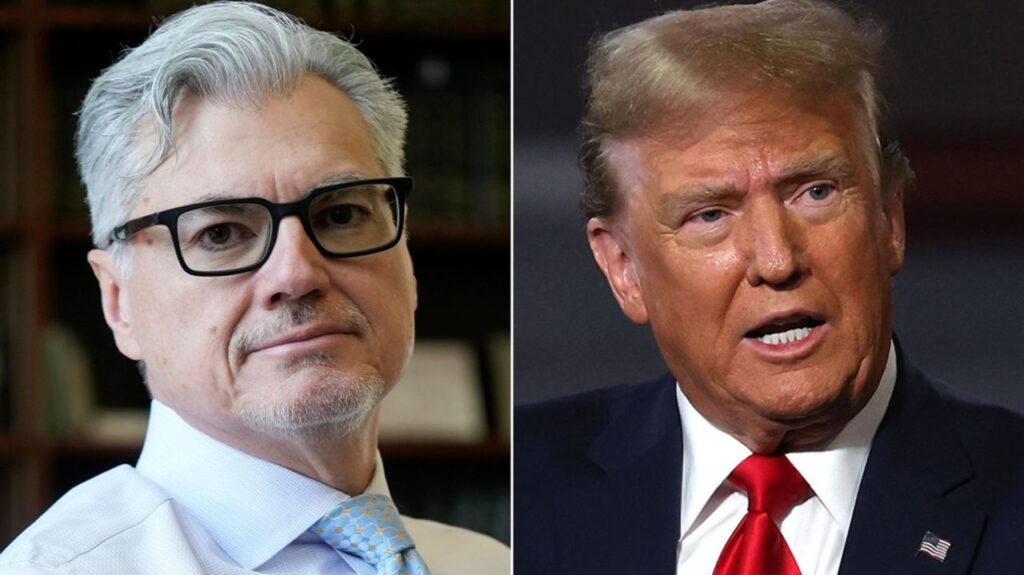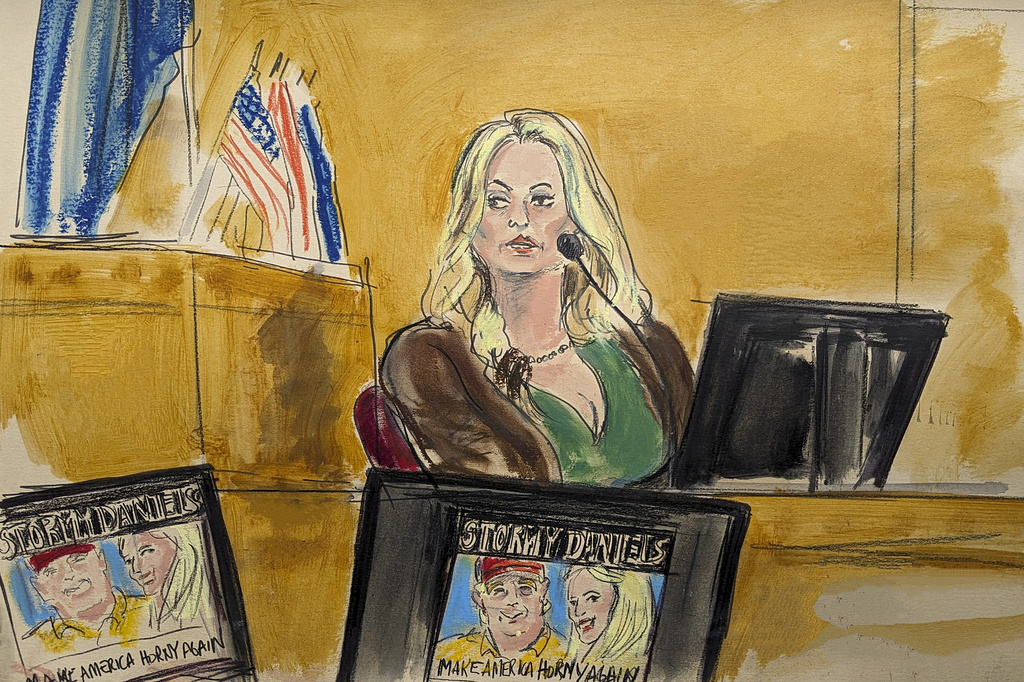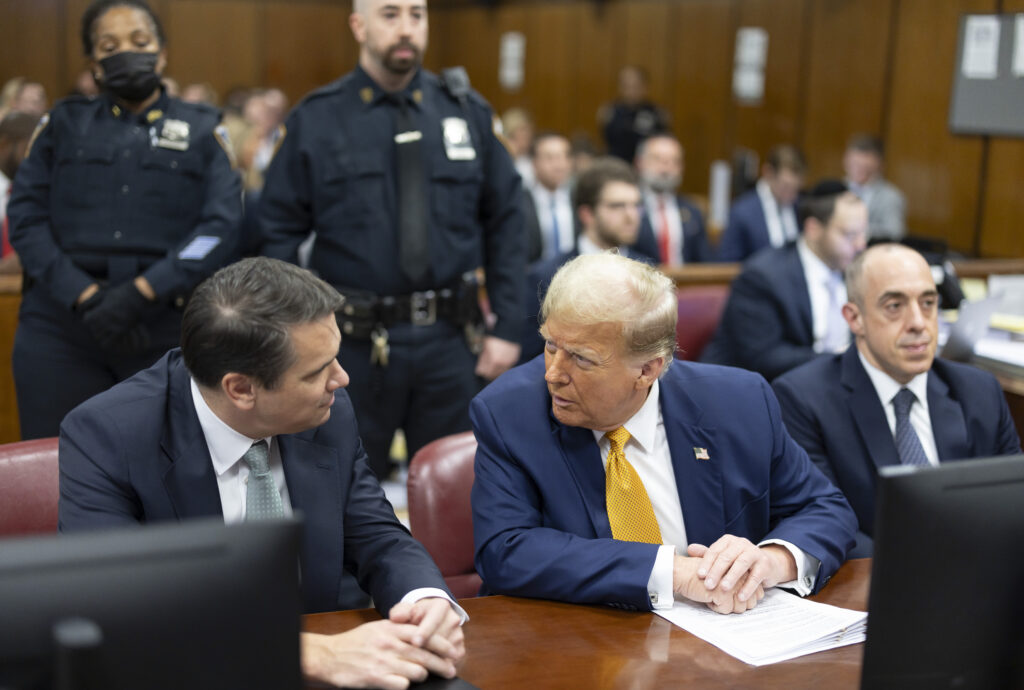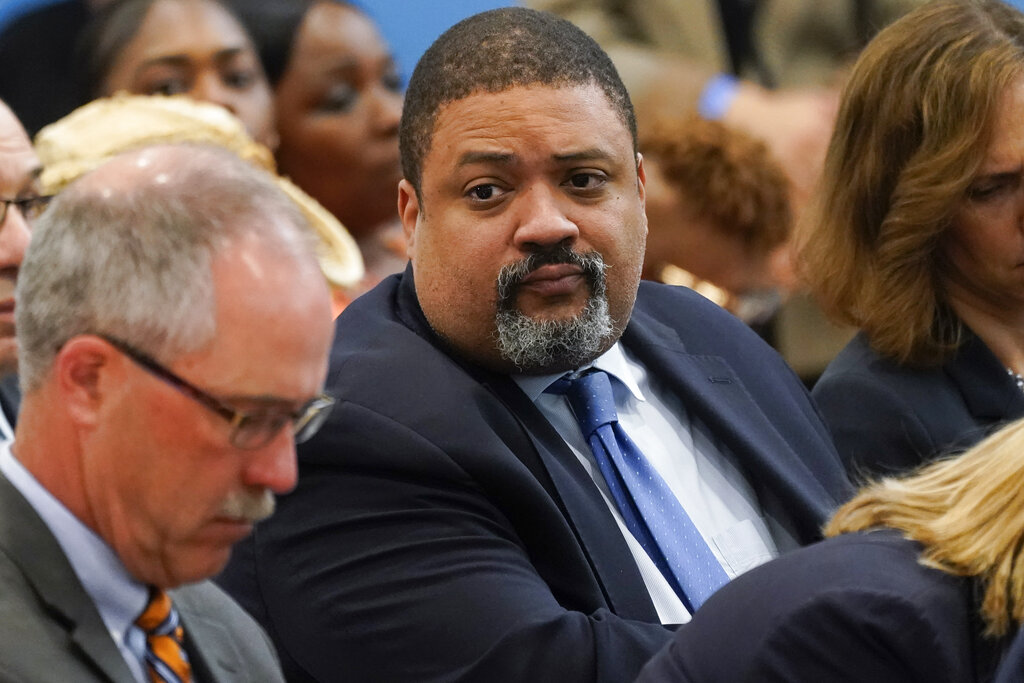New York’s Highest Court Denies Trump’s Last-Ditch Bid To Block Hush-Money Sentencing: U.S. Supreme Court Is Final Hope
Thursday’s ruling, by a Democratic judge, is the third denial this week for President Trump, who is seeking to avoid being formally enshrined as a convicted felon just ten days before his inauguration.

New York’s highest court, the Court of Appeals, denied President Trump’s last-ditch bid to block his sentencing in the hush-money case, which is scheduled for tomorrow. This leaves the Supreme Court as Trump’s last hope for preventing him from being formally made a convicted felon just days before his inauguration.
“Your proposed order to show cause was reviewed by Judge Rivera, who declined to sign the order,” the chief clerk for the New York Court of Appeals wrote in an email, published on Thursday, that was sent to Trump’s lead defense attorney, Todd Blanche. Judge Jenny Rivera, who denied the petition, is a Democrat, appointed by Governor Cuomo.
Trump’s defense team had asked the highest court in the State of New York to intervene and halt the sentencing, which the trial judge, Juan Merchan, has scheduled for tomorrow, January 10. Judge Merchan signaled that the president-elect would not face prison time nor probation, but would be released on what is known as an unconditional discharge, essentially a sentence of nothing without fines, obligations or conditions. However, the judgment of guilt would remain on Trump’s record and he would formally become a convicted felon, and the first president in U.S. history to assume the presidency as such, which would be a victory for the Manhattan district attorney, Alvin Bragg. Trump appears intent to avoid the sentencing, coming just days before he is inaugurated.
Thursday’s ruling is the third denial this week. On Monday, Judge Merchan, denied Trump’s request to halt the sentencing, saying the arguments defense attorneys had raised were “a repetition of the arguments he (Trump) has raised numerous times in the past.”

On Tuesday morning, the defense requested an emergency hearing at the Appellate Division First Department — a mid-level New York state appeals court — to stop the sentencing. Oral arguments were held before a single judge at 12:30pm. The judge, Ellen Gesmer, also a Democrat appointed by Governor Cuomo, denied the application. It is unclear if there is enough time for a full panel of judges to review the case, which is customary after a single judge makes an interim ruling. The third denial came Thursday, when the highest court in the state declined to consider the case.
Now, Trump has one last hope: the U.S. Supreme Court. Unlike the New York courts, heavily populated by Democrats, the high court has a conservative supermajority and Trump chose three of the justices. As the Sun reported, Trump had asked the justices on Wednesday to enter “an immediate stay of further proceedings in the New York trial court.
Mr. Blanche – who is poised to become the deputy attorney general for the Department of Justice – and John Sauer – set to become Trump’s solicitor general and chief representative to the court – argued that sentencing an incoming president would cause “grave injustice and harm to the institution of the Presidency and the operations of the federal government.”
They further argued that a sentencing in criminal court should be considered a matter of national security, writing that “to defend a criminal case and appear for a criminal sentencing hearing at the apex of the Presidential transition creates a constitutionally intolerable risk of disruption to national security and America’s vital interests.”

Mr. Bragg, the Manhattan district attorney who brought the case against Trump, filed his reply brief on Thursday. His prosecutors urged the Supreme Court to let the proceeding move forward, arguing that there was “no basis for such intervention.” Trump, they argued, had been charged and tried when he was as a private citizen, and the only reason he had not been sentenced yet, after a jury found him guilty six months ago, was because he had requested to postpone the sentencing again and again. Most importantly, prosecutors argued, his case revolved around personal matters, for which he should receive no presidential immunity.
“While he was a private citizen, defendant was charged, tried, and convicted for conduct that he concedes is wholly unofficial, and for which ‘there is no [presidential] immunity,’” Prosecutors wrote, referring to the landmark decision brought by the Supreme Court in July 2023, which ruled that presidents are immune from prosecution for acts committed in service and duty for the presidency.
In May of last year, a jury found Trump guilty of 34 felony charges of falsification of business records in an alleged scheme to interfere with the 2016 election.
Mr. Bragg had alleged that in 2016, with Election Day nearing, Trump’s then-personal attorney, Michael Cohen, made a $130,000 hush-money payment to the adult film star Stormy Daniels, whose real name is Stephanie Clifford, to buy her silence about her claim that she had a single sexual encounter with Trump at a celebrity golf tournament at Lake Tahoe in 2006. Trump was accused of directing Cohen to wire the money to Ms. Clifford and then disguise Trump’s reimbursement to Cohen as a legal fee. Mr. Bragg translated this transaction into multiple felony counts. Trump denies all charges and says he never had sex with Ms. Clifford.

Trump was scheduled to be sentenced on July 11. Yet on July 1, hours after the Supreme Court published its immunity decision, Trump’s attorneys asked Judge Merchan to dismiss the hush-money verdict and the indictment, arguing Mr. Bragg used evidence during the trial that stemmed from the time Trump served his first term as president. During the trial, the prosecution called as witnesses two of Trump’s closest White House aides, Hope Hicks – who wept on the stand – and Madeleine Westerhout.
The judge postponed the sentencing to September, then to early November, and then to after the election so it would not influence voters. He ultimately ruled against the argument of presidential immunity, writing that Trump’s conduct was related to personal and not to official matters.
On Thursday, prosecutors argued that Trump was taking the “extraordinary” step of asking a federal court to intervene in a state proceeding, before the conviction had been finalized, and before the formal appeal’s process had even begun.
“Defendant now asks this Court to take the extraordinary step of intervening in a pending state criminal trial to prevent the scheduled sentencing from taking place—before final judgment has been entered by the trial court, and before any direct appellate review of defendant’s conviction. There is no basis for such intervention.”

When a defendant is convicted in New York, he can appeal the conviction, usually, only after he is sentenced. But Trump, citing his unique role as a once and future president, is arguing that the sentencing should not take place before his appeal to dismiss the entire case is considered.
As of Thursday afternoon, the Supreme Court has not yet ruled on the matter. If the Nine should deny Trump’s request, Trump will be sentenced. Though, he can still appeal the conviction.
The sentencing is scheduled to take place at Manhattan criminal court on Friday at 10am, and Judge Merchan has offered Trump the opportunity to appear virtually to minimize any burden.

